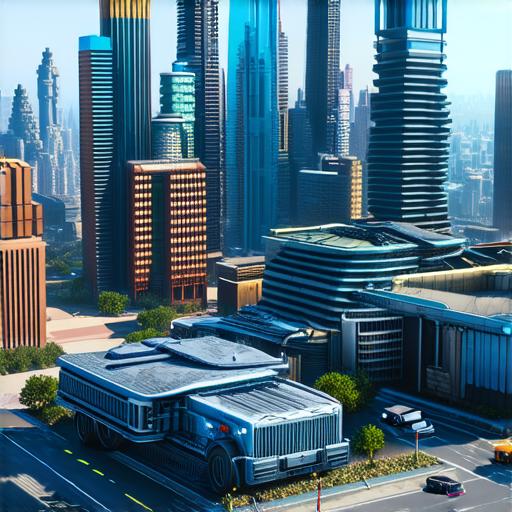
Introduction
Unity 3D is a versatile and user-friendly game engine that offers numerous benefits for developers. Here are some reasons why Unity 3D is one of the most popular choices among developers:
- Cross-platform support: Unity supports multiple platforms, including web, mobile, PC, and consoles, allowing you to reach a wider audience with your games and applications.
- Asset store: Unity has an extensive asset store that offers pre-built assets, tools, and plugins, making it easier for developers to create complex scenes and features without the need for extensive coding knowledge.
- Easy learning curve: Unity is designed to be user-friendly, with a simple drag-and-drop interface and plenty of documentation and tutorials available to help you get started.
- Large community: Unity has a large and supportive community of developers who share their knowledge and experiences through forums, social media, and other online resources.

Applications of Unity 3D
Gaming
Unity is one of the most popular game engines in the gaming industry, with millions of games created using it. Here are some examples of how Unity 3D is used in gaming:
- First-person shooters (FPS): FPS games such as Call of Duty and Fortnite are built using Unity. Unity’s physics engine provides realistic movement, while the asset store offers a wide variety of weapons and characters to choose from.
- Adventure games: Unity is also commonly used in adventure games, such as Tomb Raider and Uncharted. These games require complex level design, which can be easily created using Unity’s built-in tools and assets.
- Puzzle games: Puzzle games such as Angry Birds and Candy Crush Saga are also built using Unity. The asset store offers a wide variety of physics-based puzzles that can be easily integrated into your game.
- Mobile games: Unity is also commonly used in mobile gaming, with thousands of games created for iOS and Android devices. The asset store offers optimized assets and tools specifically designed for mobile devices.
Entertainment
Unity 3D is not just limited to gaming; it is also widely used in the entertainment industry for creating interactive experiences, such as virtual reality (VR) and augmented reality (AR) applications. Here are some examples of how Unity 3D is used in entertainment:
- VR experiences: Unity is one of the most popular engines for creating VR experiences, with thousands of games and applications built using it. With Unity’s built-in support for VR, you can easily create immersive and interactive experiences that transport users to different worlds.
- AR applications: Unity is also widely used in AR applications, such as Pokémon Go and Snapchat filters. These applications require real-time rendering and tracking of the user’s environment, which can be easily achieved using Unity’s built-in tools and plugins.
- Interactive ads: Unity is also used in interactive advertising, where brands create immersive experiences that engage users and promote their products or services. These experiences can be created using Unity’s asset store and can be easily integrated into websites or social media platforms.
- Training simulations: Unity is also used in training simulations for various industries, such as healthcare and military. These simulations provide a safe and controlled environment for users to practice complex skills and procedures without the risk of injury or damage to equipment.
Education
Unity 3D is not just limited to gaming and entertainment; it is also widely used in education for creating interactive learning experiences. Here are some examples of how Unity 3D is used in education:
- Virtual field trips: With Unity, you can create virtual field trips that allow students to explore different parts of the world or even outer space without leaving the classroom. These experiences provide a unique and engaging way for students to learn about history, geography, and science.
- Interactive lessons: Unity 3D can be used to create interactive lessons that help students better understand complex concepts in subjects such as math, physics, and chemistry. By using Unity’s built-in tools and assets, educators can create engaging and interactive experiences that make learning more enjoyable and effective.
Conclusion
Unity 3D is a powerful game engine with numerous applications across various industries. Its user-friendly interface, extensive asset store, and large community make it an ideal choice for developers of all skill levels. By using Unity 3D to create immersive and interactive experiences, you can reach a wider audience and engage users in new and innovative ways.

